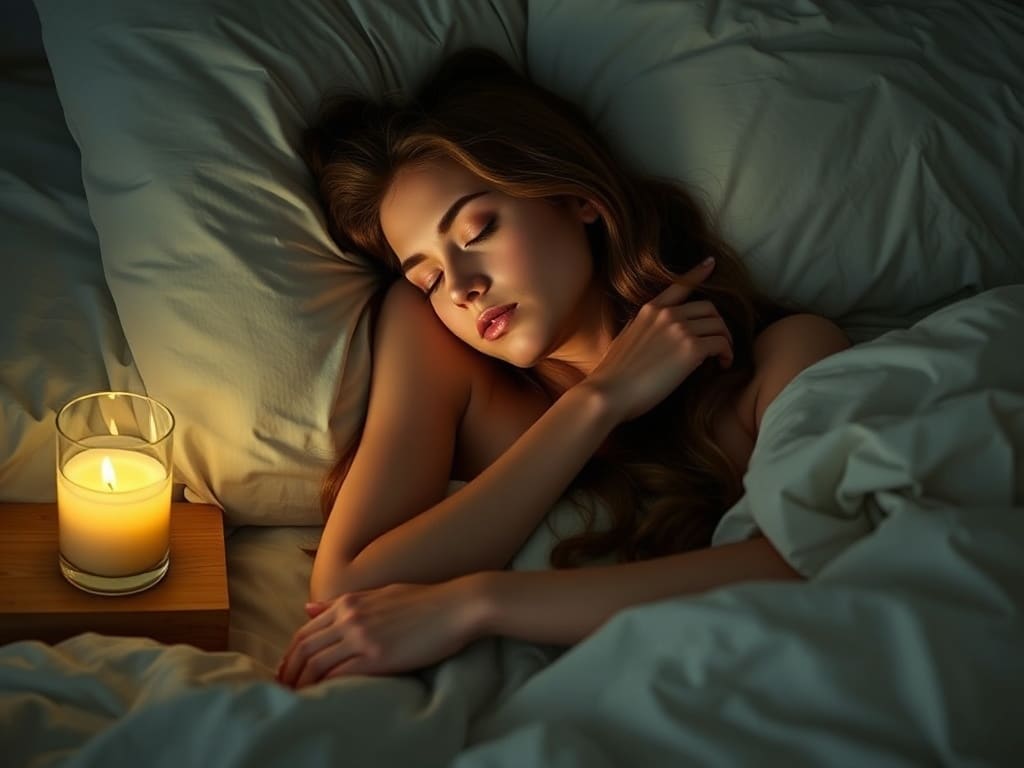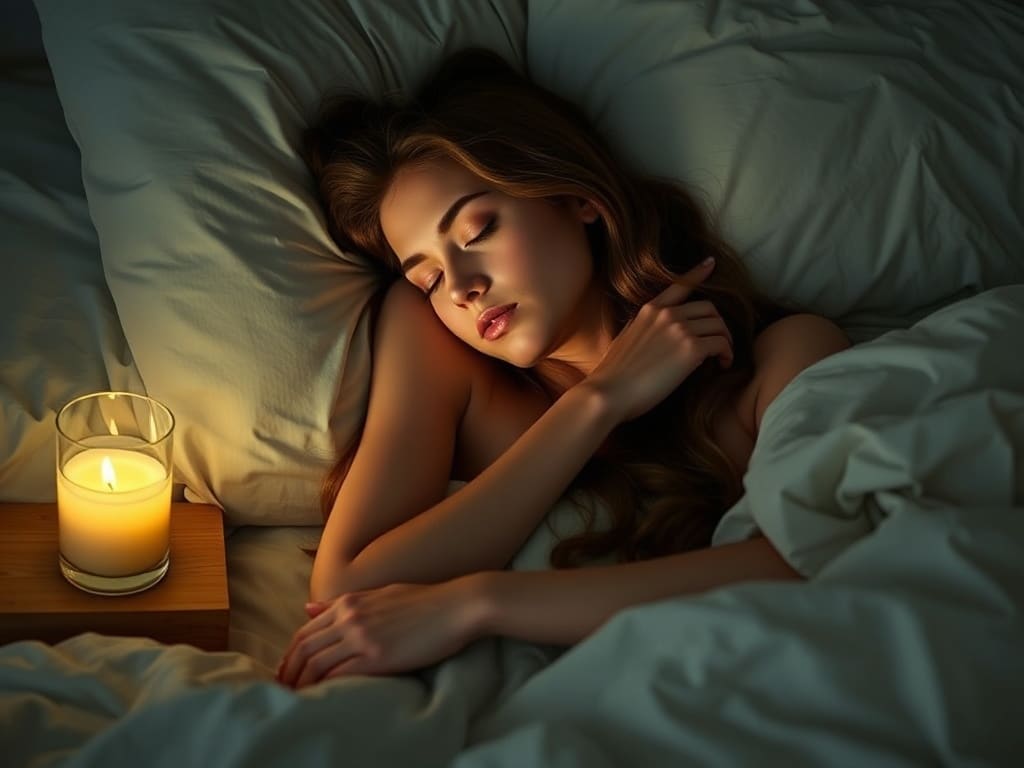Natural Sleep Remedies: 7 Remedies to Help You Relax
The Quest for Restful Nights: Exploring Natural Sleep Remedies
In our fast-paced world, a good night's sleep often feels like a luxury. Stress, endless to-do lists, and the constant hum of technology can leave us tossing and turning. It's no wonder that many are turning to natural sleep remedies for a gentle nudge into dreamland. So, what exactly are these natural sleep remedies, and how can you use them safely and effectively?
What Are Natural Sleep Remedies?
Natural sleep remedies encompass a wide range of options derived from plants, minerals, and naturally occurring substances. Unlike prescription sleep medications, they generally have milder side effects and are often used to support the body's natural sleep-wake cycle. The goal of natural sleep remedies is to promote relaxation and reduce anxiety, making it easier to fall asleep and stay asleep throughout the night. However, natural doesn't automatically mean safe for everyone. It's essential to approach these remedies with knowledge and caution.
Read on to learn about seven natural remedies that offer you the relief you are looking for.
1. Melatonin: The Sleep Hormone Demystified
Melatonin is a hormone naturally produced by the pineal gland in the brain. It helps regulate the sleep-wake cycle. As darkness falls, melatonin levels rise, signaling the body that it's time to sleep. Supplementing with melatonin can be helpful for those with disrupted sleep patterns, such as shift workers or travelers experiencing jet lag.
Dosage, Benefits, and Side Effects
The typical dosage for melatonin ranges from 0.5 mg to 5 mg, taken about 30-60 minutes before bedtime. Benefits include reduced sleep latency (the time it takes to fall asleep) and improved sleep quality. However, some individuals may experience side effects like headache, dizziness, nausea, or daytime drowsiness.
2. Magnesium: The Relaxation Mineral
Magnesium is an essential mineral involved in hundreds of bodily functions, including muscle relaxation and nerve function. It plays a crucial role in regulating neurotransmitters that are involved in sleep, such as GABA. A deficiency in magnesium can contribute to sleep disturbances.
Types, Effects on Sleep, and How to Use It
Several types of magnesium supplements are available, including magnesium citrate, magnesium oxide, and magnesium glycinate. Magnesium glycinate is often recommended for sleep due to its high bioavailability and gentle effect on the stomach. A typical dose is between 200-400 mg taken before bed. Magnesium can promote relaxation, reduce leg cramps, and improve overall sleep quality. Some individuals may experience digestive upset, so it's best to start with a lower dose and gradually increase as tolerated.
3. Valerian Root: Nature's Tranquilizer?
Valerian root is an herb that has been used for centuries to promote relaxation and improve sleep. It's believed to work by increasing levels of GABA in the brain, which helps calm nervous activity.
How It Works, Dosage, and Potential Interactions
Valerian root is often taken in capsule, tea, or tincture form. The typical dosage is 400-900 mg of valerian root extract taken 30-60 minutes before bedtime. While generally safe, some people may experience side effects like headache, dizziness, or stomach upset. It's important to be aware of potential interactions with other medications, especially sedatives, antidepressants, and antihistamines. Consult with your doctor or pharmacist before using valerian root if you are taking any other medications.
4. Lavender: Scenting Your Way to Sleep
Lavender is renowned for its calming and relaxing properties. Its fragrant essential oil has been shown to reduce anxiety and improve sleep quality.
Forms of Use, Benefits, and Safety
Lavender can be used in various ways to promote sleep. Diffusing lavender essential oil in the bedroom, adding a few drops to a warm bath, or using a lavender-scented pillow spray are all popular options. Drinking lavender tea can also be beneficial. Lavender is generally considered safe, but some individuals may experience skin irritation from topical application of the essential oil. Always dilute lavender essential oil with a carrier oil (such as coconut or almond oil) before applying it to the skin. Also, ensure you are sourcing your essential oils from a reputable brand.
5. Chamomile: A Cup of Comfort Before Bed
Chamomile is an herb widely known for its soothing and calming effects. Chamomile tea is a popular beverage for promoting relaxation and sleep.
Preparation, Effects on Relaxation, and Who Should Avoid It
To prepare chamomile tea, steep a tea bag or loose chamomile flowers in hot water for 5-10 minutes. Chamomile is believed to work by binding to GABA receptors in the brain, promoting relaxation and reducing anxiety. While generally safe, people with allergies to ragweed, marigolds, or chrysanthemums may experience an allergic reaction to chamomile and should avoid it.
6. L-Theanine: Calm Focus for Restful Sleep

L-Theanine is an amino acid found primarily in green tea. It's known for its ability to promote relaxation without causing drowsiness.
Mechanism of Action, Dosage, and Combination with Caffeine
L-Theanine increases levels of GABA and other calming neurotransmitters in the brain. It can help reduce anxiety, improve focus, and promote a sense of calm. The typical dosage is 100-200 mg taken before bed. Interestingly, L-Theanine is often combined with caffeine to enhance focus and reduce the jittery side effects of caffeine. However, when used for sleep, it should be taken on its own, without caffeine.
7, Tart Cherry Juice: A Natural Source of Melatonin
Tart cherry juice is a natural source of melatonin, the hormone that regulates the sleep-wake cycle. Studies have shown that drinking tart cherry juice can improve sleep duration and quality.
Benefits for Sleep, Timing of Consumption, and Considerations
Drinking tart cherry juice before bed can help increase melatonin levels and promote sleep. A typical serving is 8 ounces, consumed about 1-2 hours before bedtime. Be sure to choose unsweetened tart cherry juice to avoid added sugars. People with certain medical conditions (like kidney issues) or those taking certain medications should consult a doctor before incorporating tart cherry juice into their routine.
Lifestyle Changes to Improve Sleep: The Foundation for Restful Nights
While natural remedies can be helpful, establishing good sleep hygiene is crucial for long-term sleep improvement.
Sleep Hygiene, Diet, Exercise, and Screen Time
- Sleep Hygiene: Maintain a consistent sleep schedule, even on weekends. Create a dark, quiet, and cool sleep environment.
- Diet: Avoid caffeine and alcohol close to bedtime. Eat a balanced diet and avoid large meals before sleep.
- Exercise: Regular exercise can improve sleep, but avoid intense workouts close to bedtime.
- Screen Time: Limit screen time (phones, tablets, computers) at least an hour before bed. The blue light emitted from screens can interfere with melatonin production.
Creating a Relaxing Bedtime Routine: Setting the Stage for Sleep
A consistent bedtime routine signals to your body that it's time to wind down.
- Take a warm bath or shower.
- Read a book or listen to calming music.
- Practice relaxation techniques like deep breathing or meditation.
- Write in a journal to clear your mind.
Safety Considerations and Potential Interactions: Know Before You Use
While natural sleep remedies are generally safe, it's important to be aware of potential risks and interactions.
- Consult with your doctor or pharmacist before using any new sleep remedy, especially if you are taking other medications or have underlying health conditions.
- Be aware of potential side effects.
- Start with a low dose and gradually increase as needed.
- Some natural remedies may interact with medications like blood thinners, antidepressants, and sedatives.
When to Seek Professional Help for Sleep Problems: Recognizing the Need for Expert Guidance
If you've tried natural remedies and lifestyle changes without success, or if your sleep problems are significantly impacting your daily life, it's time to seek professional help. Consider consulting a doctor or sleep specialist if you experience:
- Chronic insomnia (difficulty falling asleep or staying asleep for at least three months).
- Excessive daytime sleepiness.
- Snoring or suspected sleep apnea.
- Restless legs syndrome.
Debunking Common Myths About Sleep and Sleep Remedies, Natural or Other: Separating Fact from Fiction
- Myth: You can catch up on sleep on the weekends. Fact: While sleeping in on weekends can help, it doesn't fully compensate for chronic sleep deprivation.
- Myth: Alcohol helps you sleep better. Fact: Alcohol may help you fall asleep initially, but it disrupts sleep later in the night and can lead to poor sleep quality.
- Myth: All natural sleep remedies are safe for everyone. Fact: Natural remedies can have side effects and interact with medications.
Natural Remedies for Specific Sleep Problems: Tailoring Solutions to Your Needs
- Insomnia: Melatonin, valerian root, and magnesium may be helpful.
- Anxiety-Related Sleep Issues: Lavender, chamomile, and L-Theanine can promote relaxation.
Potential Risks, Contraindications, and Allergies: A Word of Caution
Always be aware of potential allergies or sensitivities to natural remedies. Some remedies may be contraindicated for certain conditions. For instance:
- Chamomile should be avoided by people with allergies to ragweed.
- Valerian root may not be suitable for pregnant or breastfeeding women.
- Magnesium can cause digestive upset in some individuals.
Embrace Natural Slumber
Natural sleep remedies can be a valuable tool in your quest for better sleep. By understanding how these remedies work, using them safely, and creating a supportive sleep environment, you can pave the way for restful nights and energized days. Remember to consult with a healthcare professional to determine the best approach for your individual needs. Sweet dreams!

